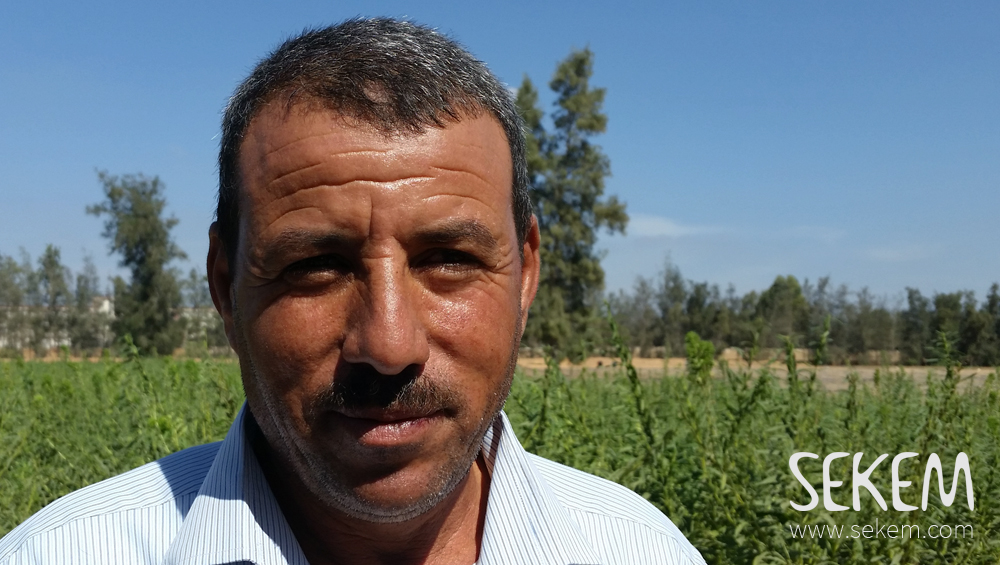For more than 25 years, Mohammed has dedicated his working life to SEKEM. He remembers how it all began.
“When I started working for SEKEM I used to walk to the farm. Later I got myself a bicycle, then a motorcycle, and now I have a car”, Mohammed Mansour says when he recounts the changes in his life since he joined SEKEM. The father of six children started working at SEKEM in 1989 when the farm Adleya, located around four kilometres from the SEKEM main farm, was built. Mohammed knows the area by heart and still remembers how it looked more than 30 years ago: “There was nothing than desert here. No trees, plants – not even roads. They way from the SEKEM main farm to Adleya was a sandy path. Desert land as far as the eye could see.”
The ambitious SEKEM farmer is responsible for all mechanical and electrical engineering on Adleya, which today is a prospering venture where different kinds of vegetables are cultivated, many greenhouses have been build and, lately, SEKEMs water factory has been erected. In the 1980s Mohammed Mansour helped to dig the first wells, then he planted the first trees and installed an electrical generator. “When we started to reclaim the desert, we were only four farmers. Now we are almost 200 workers in Adleya”, he remembers. “Back then, we didn’t have a proper place to eat or rest. Now that all this and so much more is available, that seems like a small miracle to me.”
Mohammed Mansour’s father already used to work for SEKEM as a tractor driver. The whole family is living in Galfina, a small village directly adjacent to the SEKEM farm. Here, Mohamed’s family owns a house. Over the years, his relatives have recognised many changes to their hometown, too. Mohammed: “My mother always says that SEKEM is our blessing. Due to the work of the SEKEM community, our village grew, too. We received running water, a regular electricity supply, and good medical services.”
All of the farmer’s six children attended the SEKEM School or still do so. One of his sons is even a student at the Heliopolis University for Sustainable Development. “As we are a peasant family, this advancement is a great honour and source of prestige for us. Usually, farmers don’t have the chance to offer their children education at a private school or university.”
When Mohammed is driving along the roads today adorned with trees and surrounded by green fields, he keeps remembering how quickly the area developed during the last decades. He feels proud and is thankful that he had the chance to be part of this development. “Our life here is very good now and I wish that this positive development will continue. I hope SEKEM will expand to different places and offer more people work or the chance to benefit from their schools and medical institutions”, the happy family father says. “We can start to reclaim more desert for cultivation and the construction of plants – I am sure this is possible. More people should benefit from the same blessings as we could.”
More people in SEKEM

